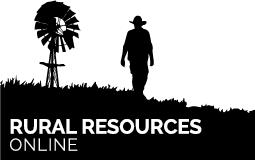Ultimately, an organised office is one where the systems put in place make the process of finding something simple – whether it is a receipt, invoice, stock records or the contact details of a supplier.
I need systems in place to feel organised. I say ‘feel’ because if you visited my home it would not ‘look’ organised.
At times there are invoices on the dining room table, dozer parts on the side -table and kids jigsaw puzzles on the floor next to the bulky bean bags I have to walk around to get to the front door. That’s life.
Over the years I have refined what we do to make the bookwork side of our business manageable. I can’t say enjoyable because I don’t really like bookwork. Less frustrating, but not enjoyable.
I have put together a more detailed guide to help set up a farm office system. A complete overhaul isn’t always needed but sometimes new ideas are worth trying.
Organised chaos
The reality for most offices is organised chaos. Do you relate?
Generally, it is a shared area. At times, it can get crowded, especially if there is something funny on YouTube or it looks like there might be a storm brewing and the BOM site is being stalked.
As property work does not ‘happen’ in a room in the house, being organised is more about the simple systems you can introduce to help with the farm office work, compliance and management demands.
Start with a few simple strategies, such as:
Use whiteboards
Often the hardest part of recording information in the office is getting it out of the heads of those who have the information. Whiteboards work well in the shed to list jobs and record part numbers that need to be ordered.
A strategically placed whiteboard near the washup area is great for recording stock treatments, mustering information and stock movements and numbers.
The larger the whiteboard the better as this allows as much information to be written up as necessary before it is forgotten. Larger boards also mean multiple entries can be made before the details have to be transferred to the office books.
Colour code your office
An efficient office is one that can be navigated around easily and has a filing system in place that all staff can understand and follow. A simple way to organise an office is to identify the key record keeping areas and to assign a colour to each area.
Use an A4 Diary
Diaries are still an essential management tool, not just for planning but also for simple record keeping.
In our procedure documents for Animal Production it states we do not work stock in the cattleyards in the wet.
During our BMP Grazing audit the auditor asked us to prove we did not work cattle in the wet.
It wasn’t enough to say ‘it’s common sense’.
Fortunately, my husband had a diary entry about a booked helicopter and mustering on a certain date and then a note saying ’32mm of rain, cancelled chopper heading to Blackall instead’.
A diary is also an essential tool to help demonstrate your commitment to safety. Note down records of conversations with staff if you have spoken about a wh&s matter such as speed limits around buildings.
An A4 day-to-a-page diary can act as an organiser, telephone message book, and daily information record keeper.
Making a habit of having the diary open at the current day’s date, near the phone eliminates the frantic search for the piece of paper with the all-important phone number on it.
Buy a laminator
A cheap laminator is a fantastic investment for any rural office. A laminated property map is a great resource to have in the door of the work ute, particularly if you have casual employees or backpackers who may not be that familiar with the property.
A list of local properties detailing their occupants’ names, contact details and UHF numbers is also great to have laminated, as is a list of commonly used names and phone numbers.
Laminated sheets don’t take up much room and are a good quick reference list for agents, meat buyers, contractors and other businesses.
Creating your own ready reference saves time and enables you to record individual names and direct phone numbers which often allows a faster connection than going through the receptionist of a company.
Use checklists
The level of record keeping that is required to operate a farm business can be overwhelming at times. By setting up some simple checklists that can be utilised as part of the record keeping system, a business is able to prove that they are operating within legislative and industry requirements.
Like anything, everyone will have different approaches that work for them.
For more detailed suggestions for setting up a farm office system and managing the increasing workload download my guide (7 Quick and Easy steps to setting up a rural office).
It is worth taking the time to set up a simple system for office work that can be easily understood because ultimately, you need time away and you want things to work efficiently even when you are not there.





